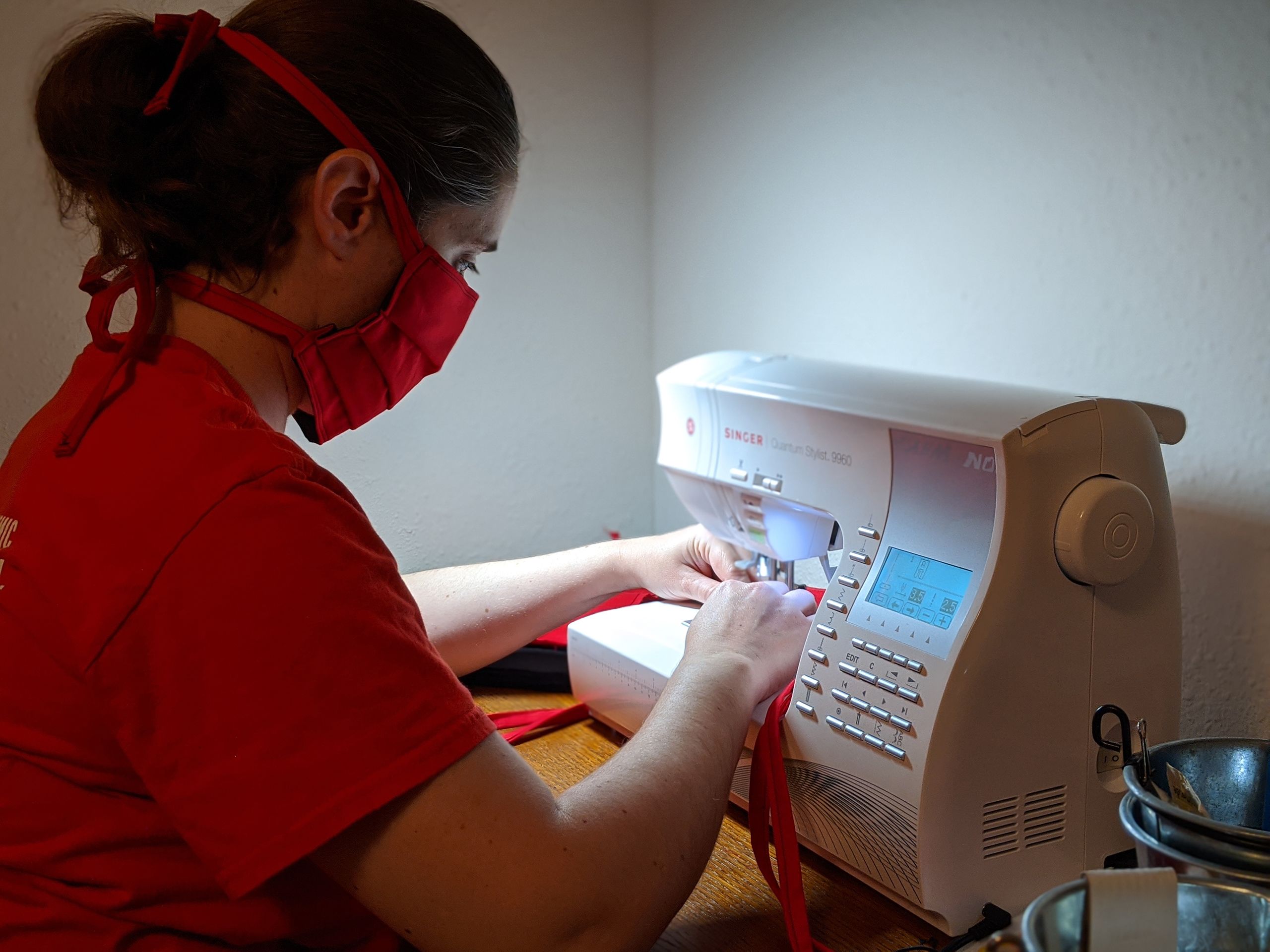Shields of Protection
When COVID-19 hit Houston, UH makers, crafters and givers sprang into action providing critically needed protective equipment to health care workers.
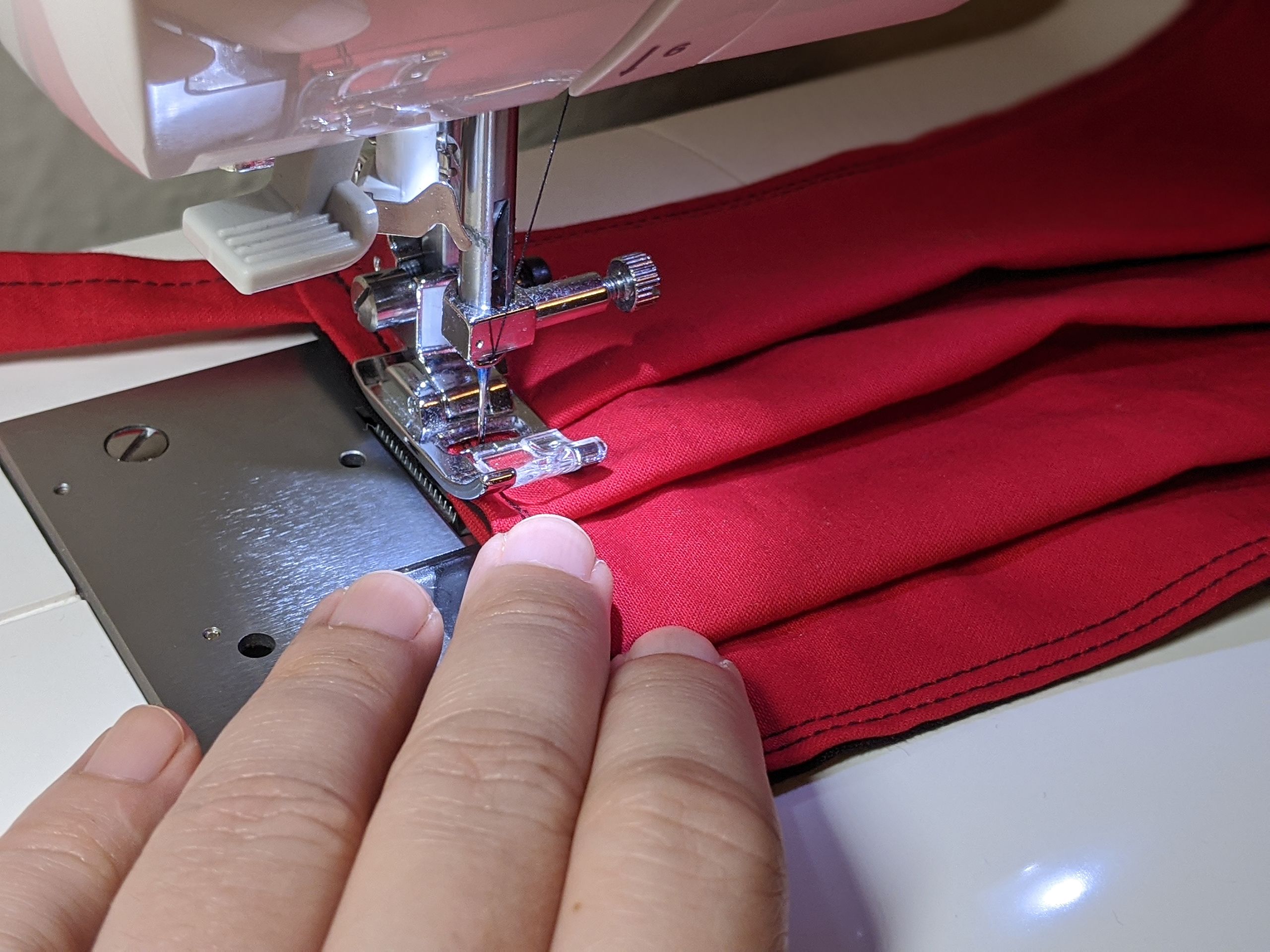
Gerald D. Hines College of Architecture and Design Produced Face Shields for Houston Hospitals
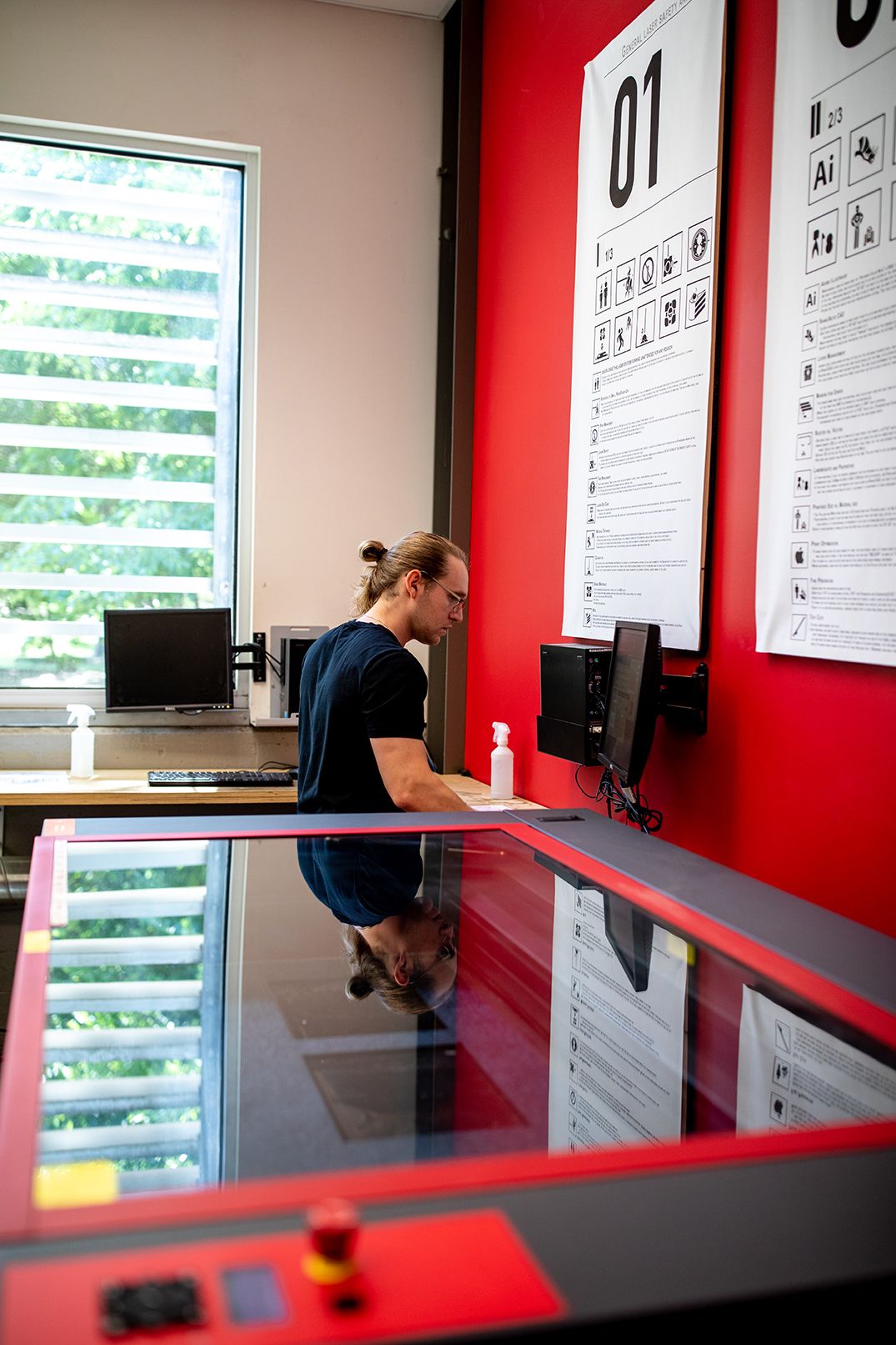
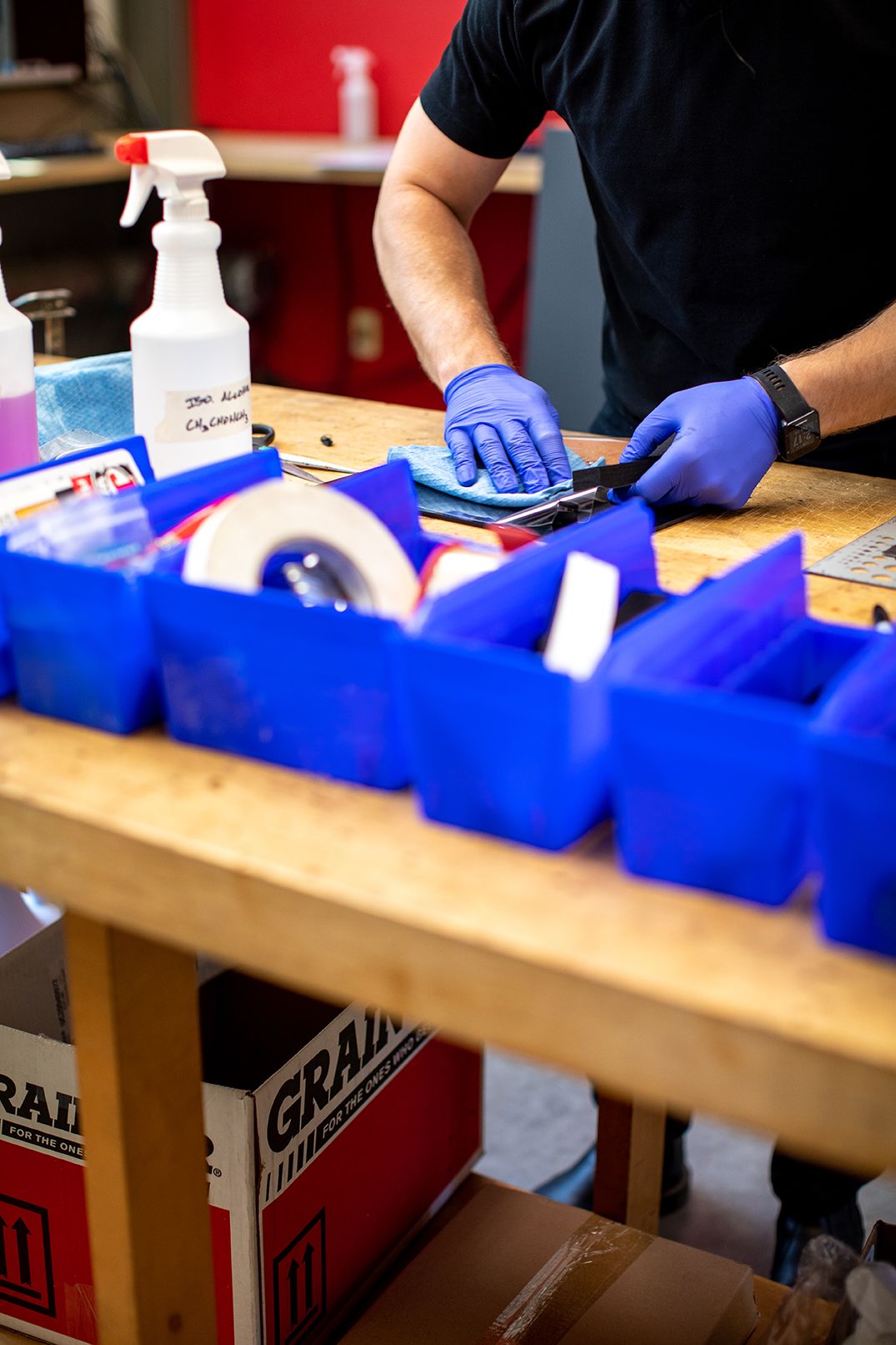
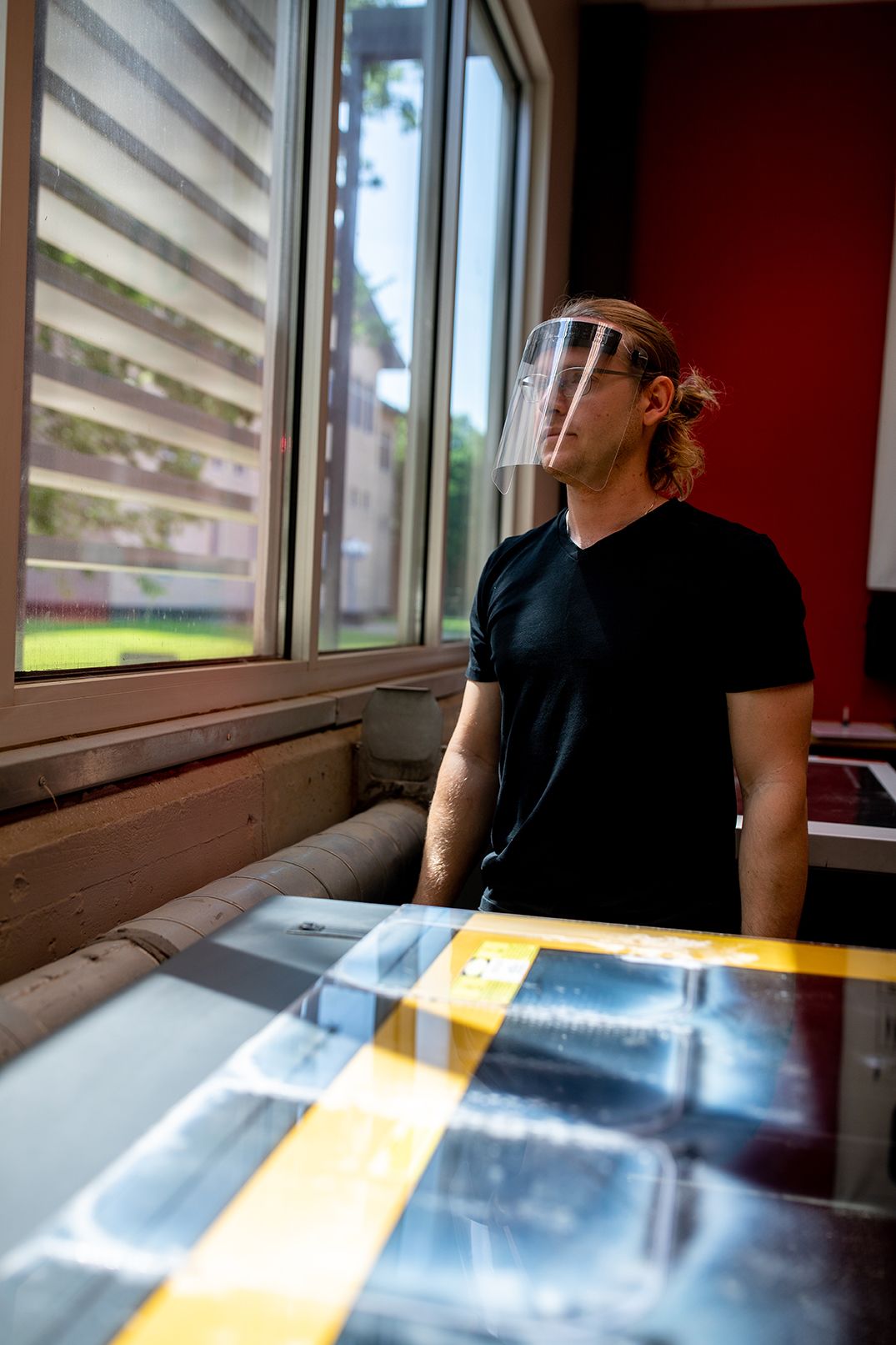
This spring, the coronavirus pandemic created a global shortage of personal protective equipment (PPE) such as gloves, masks and full-body coveralls. Hospital officials said face shields were among the most challenging pieces of equipment to get.
Enter Aaron McEuen, the instructional lab manager at the University of Houston Gerald D. Hines College of Architecture and Design.
Inside the Burdette Keeland, Jr. Design Exploration Center at UH, McEuen began running the laser cutter at top speed — not to create the latest architectural model or prototype — but to save lives. He led the effort to manufacture 1,000 shields for frontline health care workers at Harris Health System’s Ben Taub and Lyndon B. Johnson hospitals.

“We produced a face shield similar to what the hospitals use now but with modifications to make them more suitable for long-term use and to better match our manufacturing capabilities,” explained McEuen, who earned both his bachelor’s and master’s degrees in industrial design at UH.
“Face shields are also the most effective equipment to protect our frontline doctors and nurses who are directly working with COVID-19 cases and suspected COVID-19 patients,” said Chris Okezie, vice president of system operations for Harris Health System.
McEuen used a thin, reusable plastic called polyethylene terephthalate glycol, or PETG, which is commonly used to make food containers and beverage bottles.

The laser cutter operated quick enough to create 10 face shields in about three minutes. That means 100 face shields every half hour. Once the plastic was cut to the required dimensions provided by Harris Health, three student lab workers assembled the shields in their homes, adding the cushions and elastic straps used to comfortably secure the shield around the head.
Clint Wright, a senior studying architecture completed between 100-150 shields in less than eight hours.
“If these shields end up saving lives, it was all worth it,” said Wright. “I feel like making these shields will give researchers more time to hopefully find a cure.”
“If these shields end up saving lives, it was all worth it.”

“This is a great example of how people of this great city and county come together to address a common and dire need,” said Dr. Esmaeil Porsa, president and CEO of Harris Health System.
In a separate initiative, architecture adjunct professor Roya Plauché and her husband, John Paul, both UH alumni and consultants for the college’s designLAB, turned their Houston-area home studio into a makerspace for printing critically needed face shield headbands. As owners of the multidisciplinary design firm, Plodes Studio, they worked in coordination with TXRX Labs, an East End nonprofit, assembling PPE for Memorial Hermann Health System.
With their 3D printer running 24 hours a day, seven days a week, they produced over 250 headbands from polylactic acid, a corn-derived biodegradable plastic alternative to traditional petroleum-based plastics. Upon completion, the headbands were transported to TXRX Labs, where they were attached to a laser-cut face shield and elastic band.
In addition, they produced over 100 masks on their 3D printer, which went to a nursing home and other frontline workers.
“It’s a humanitarian effort to protect our first responders,” said John Paul Plauché. “As designers, we are basically problem-solvers. This is a problem that had to be solved.”
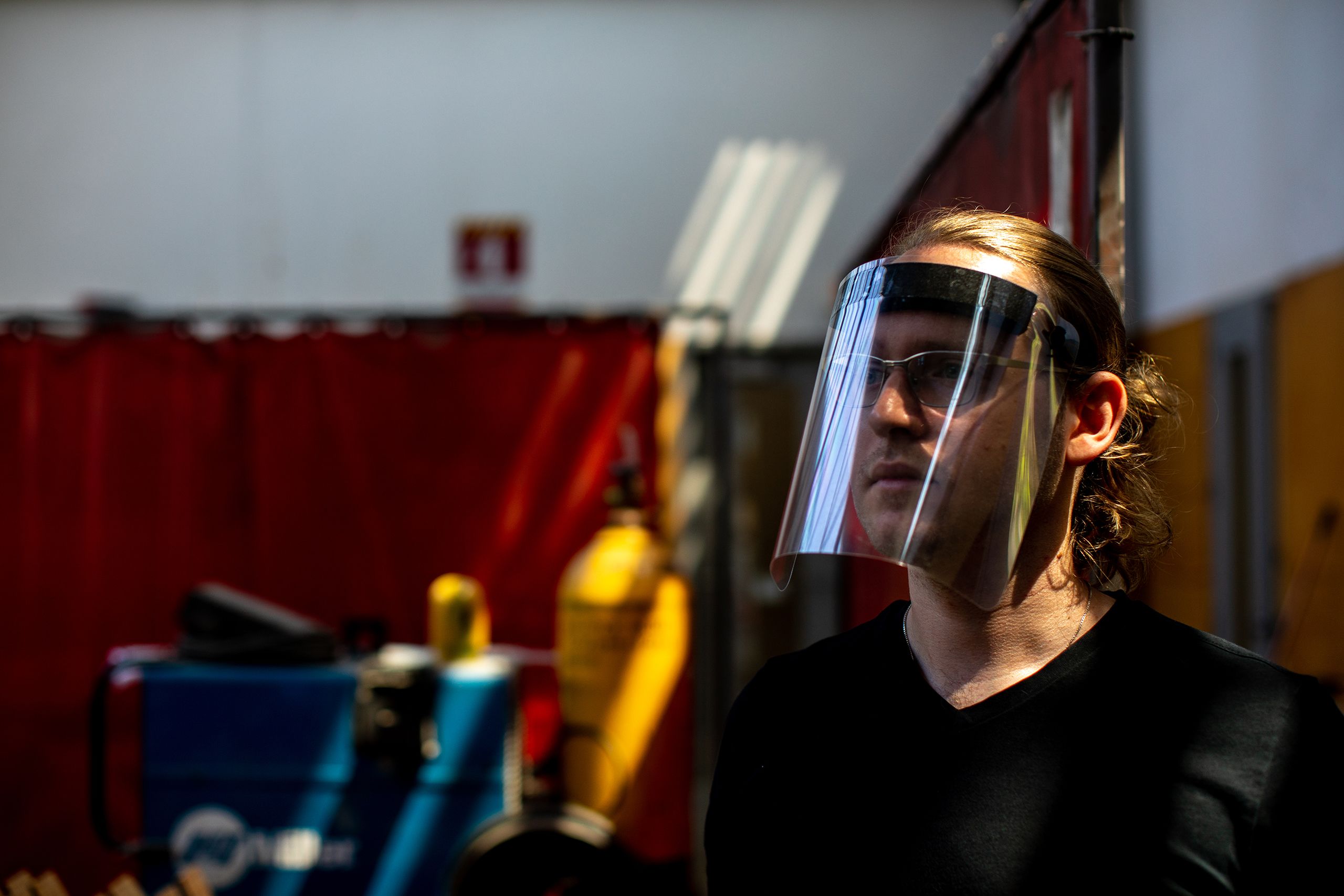
Answering the Call of Duty
In March, health care facilities across the country began preparing for a surge of COVID-19 patients with a growing concern over the safety of the workers on the front lines of the fight. When the Texas Medical Center asked for help from anyone with access to much-needed gloves, masks and protective coveralls, University of Houston researchers answered the call.
Dr. David Brammer, executive director and chief veterinarian of Animal Care Operations, packaged and sent 70 full-body coveralls, which offer superior protection against a variety of hazards, including body fluids. COVID-19 is spread through respiratory droplets produced when an infected person coughs or sneezes, making that high-density polyethylene buffer between hospital staff and patients so critical. In addition, Brammer’s department donated two powered air-purifying respirators, or PAPRs – helmet-like devices used to safeguard against contaminated air.
“I worked in the pharmaceutical industry for many years, and our motto was the patient is waiting, meaning the patient’s well-being is everything. Helping these heroic health care workers and patients by sacrificing our gear for the betterment of their health is what the University of Houston is all about,” said Brammer.
The staff in Brammer’s department – working to promote and support breakthrough biomedical research at the University – volunteered to modify processes to conserve its current supply of protective coveralls. “It’s more important now than ever before for everyone to unite to help the most vulnerable during this crisis,” he added.
Others at UH have responded to the calls for help, as well. Seamus Curran, physics professor and founder of Integricote, offered personal protective equipment from his lab to the city of Houston. Integricote is a nanotech company based at the University’s Technology Bridge, which produces coatings and sealers for fabrics, glass, tarps, wood and masonry.
The body suits, N95 masks, gloves and safety glasses are things we would typically have in the lab, he said. “You always wear a mask. You always wear gloves. If you’re worried about something splashing on you, you wear a body suit.”
After a friend who works at local hospitals mentioned the critical need for safety equipment, Curran contacted the mayor’s office with an offer: 27 body suits, 73 N95 masks and 200 gloves. He quickly got a response from the Houston Health Foundation, accepting the offer.
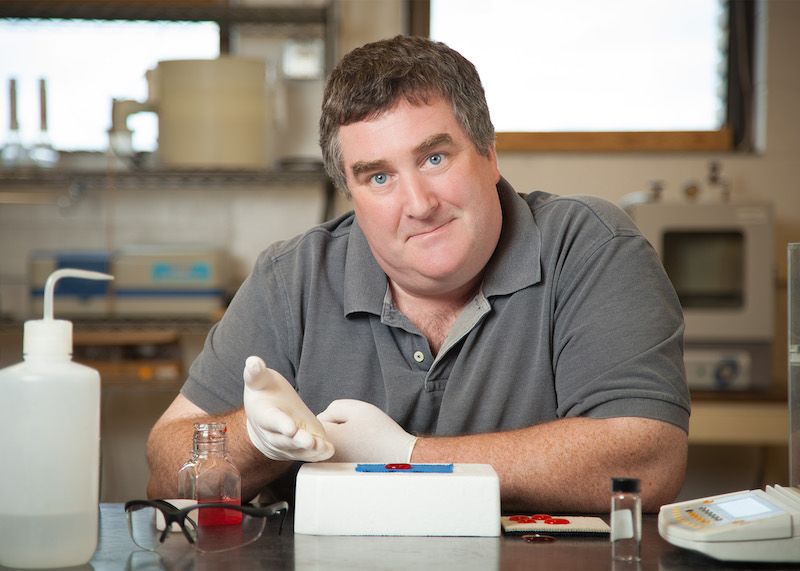
Seamus Curran, physics professor and founder of Integricote, offered personal protective equipment from his lab to the city of Houston.
Seamus Curran, physics professor and founder of Integricote, offered personal protective equipment from his lab to the city of Houston.
“Helping these heroic health care workers and patients by sacrificing our gear for the betterment of their health is what the University of Houston is all about.”
– Dr. David Brammer, executive director and chief veterinarian of Animal Care Operations
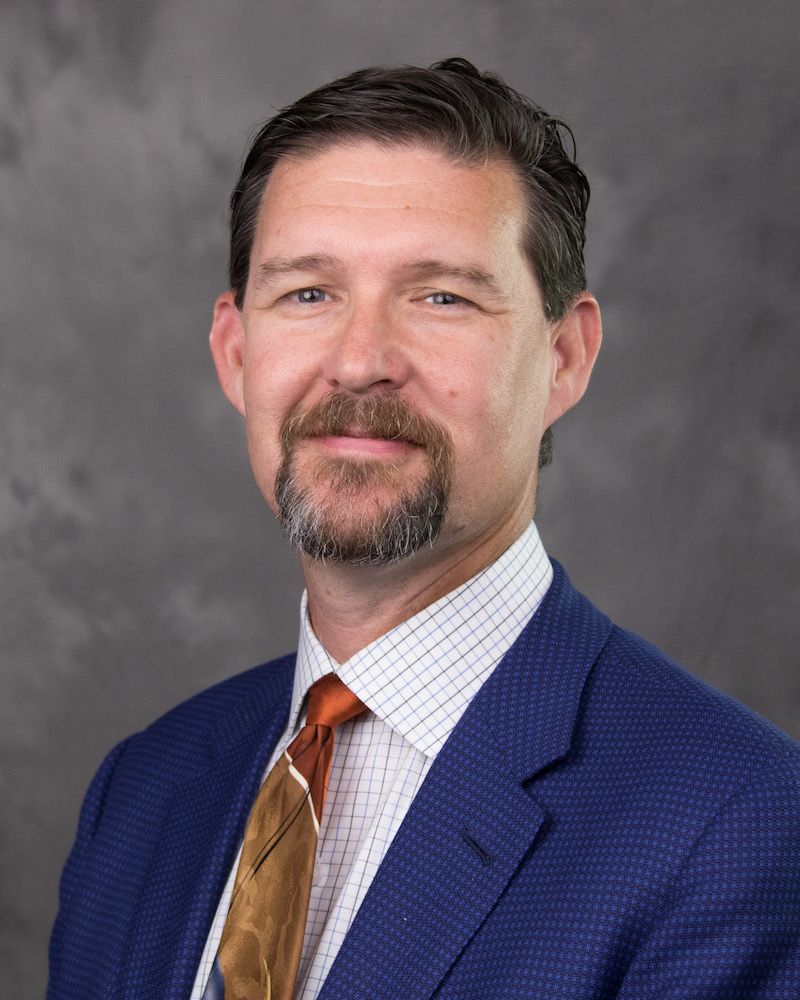
Dr. David Brammer sent full-body coveralls and air-purifying respirators to the Texas Medical Center.
Dr. David Brammer sent full-body coveralls and air-purifying respirators to the Texas Medical Center.
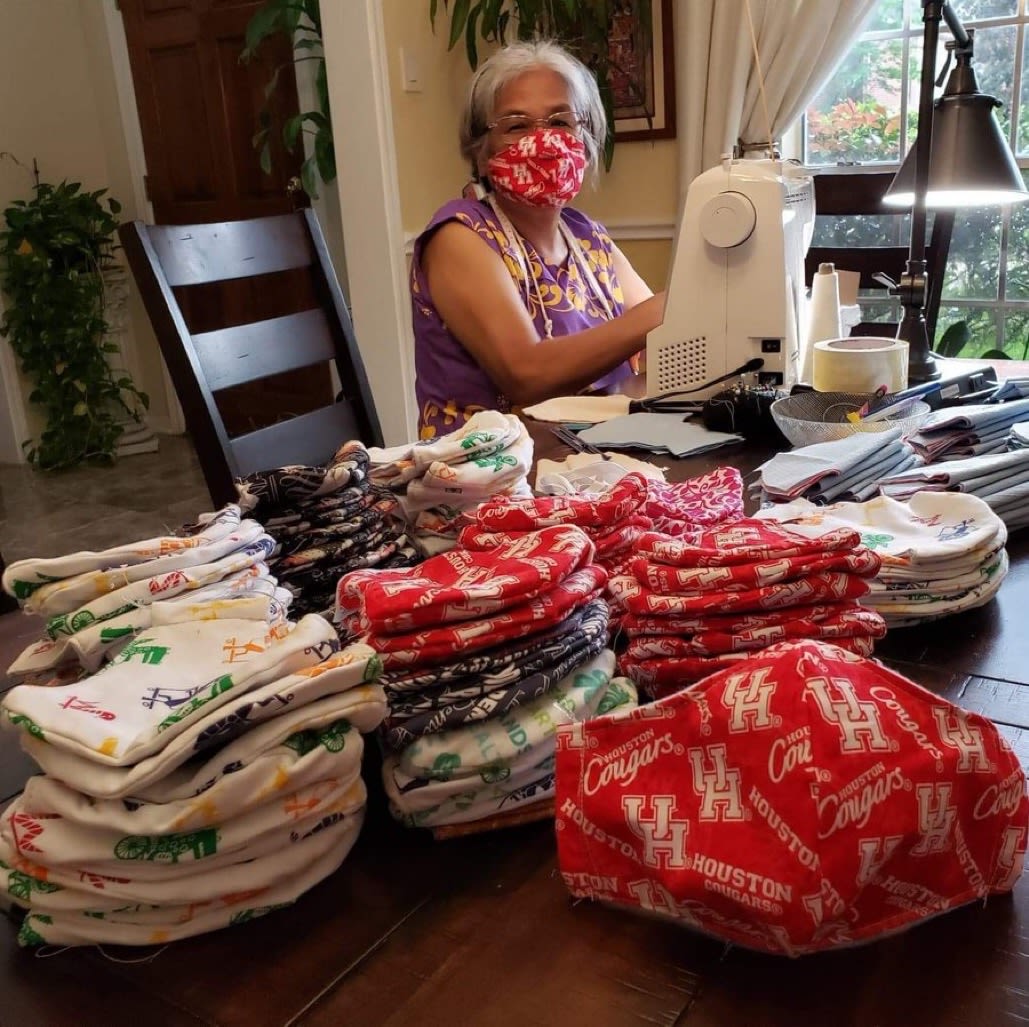
As hospitals braced for the battle and worked to secure the necessary supplies and equipment to give their staff the best chance to win, they were grateful for a little extra help from some caring Coogs.
In April, UH Graduate College of Social Work kicked off a mask drive to supply social workers and their clients with free face coverings.
The college recruited 35 volunteers to sew masks and donated more than 1,600 masks to 28 social service agencies across the Houston region.
“It is heartwarming to know the social work community has our backs and is looking out for our care and safety. As essential staff at HAWC [Houston Area Women’s Center], we are on our own front lines serving a vulnerable population. Thank you to the UH GCSW! We are so grateful,” said Aly Jacobs, HAWC director of counseling and advocacy.
Elizabeth Wingfield is one of 35 volunteers who sewed masks for social workers and their clients.
